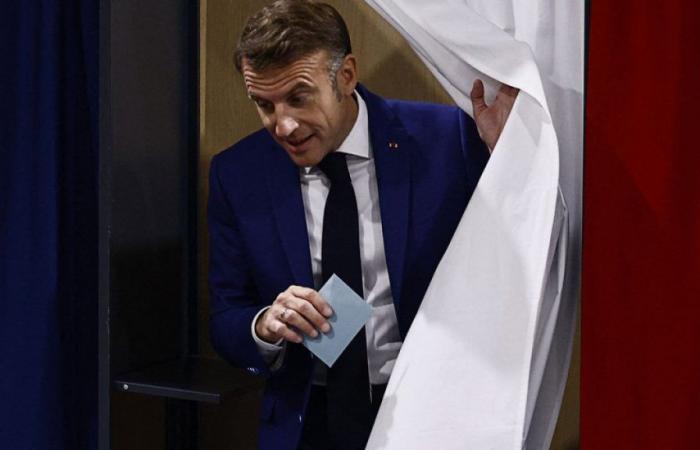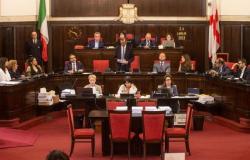After a new crushing defeat at the hands of the far right in the first round of the legislative elections on Sunday, the future of the French President’s centrist party is at risk and some experts are wondering whether it will continue to exist
French President Emmanuel Macron’s centrist coalition suffered another humiliating defeat on Sunday, following its defeat in the last European elections. His alliance came in third with 20.7% of the vote, while the alliance of left-wing parties, the New Popular Front, won 28%. The far-right coalition led by the Rassemblement National won 33.4%, almost doubling its result compared to the 2022 legislative elections.
What do these results mean for the presidential field?
When French President Emmanuel Macron called the snap elections on June 9th, he spoke of “a moment of essential clarification”. But, after three weeks of hasty and confusing election campaigning, the results show that the President’s gamble has failed.
“His party coming in third in an election he himself caused is a major defeat,” said Emmanuel Rivière, a political and polling expert. In a written statement, Macron did not admit that his party had been defeated, calling instead for “a broad, clearly democratic and republican demonstration for the second round.”
Macron and his allies have called on their supporters to prevent the far right from winning the seats it needs to take power in the next round of legislative elections, scheduled for July 7. Gabriel Attal, Macron’s outgoing prime minister, has urged voters to prevent the Rassemblement National from winning, but has also said Jean-Luc Melenchon’s party, La France Insoumise, is not a credible choice.
What will happen to Macron’s party?
According to François-Xavier Millet, a political expert and professor at the University of the Antilles, Sunday’s vote was in many ways a protest vote against the president’s handling of key domestic issues.
Millet told Euronews that “there is no hope for the presidential party in the short term”, but in the long term he believes that Macron could still save what remains of his party if the Rassemblent National gets an absolute majority of seats: “If the far right will be at the head of the government – said the political scientist – Macron could try to regain some sort of long-term political legitimacy by presenting himself as a guarantor of the Constitution who seeks to safeguard the French from some decisions of the far right”.
Next Sunday’s runoff will feature an unprecedented number of seats with three candidates still in the running, making it a week of intense political negotiations.
Parties will decide who should withdraw to have the best chance of defeating far-right candidates in their constituencies. Nominations for the second round must be submitted by 6pm on Tuesday by candidates who have obtained at least 12.5% of the votes of registered voters.
Emmanuel Rivière says the future of the centrist alliance is in danger, as the political landscape will change after this snap election. “Macron’s possible successors will try to build something new,” the pollster told Euronews, referring to Macron’s former prime minister, Edouard Philippe, who leads the center-right Horizons party.
Last week Philippe accused Macron of having “killed the presidential majority” and many other politicians from the presidential camp expressed their frustration and disappointment with his decision to dissolve the National Assembly.
Many candidates from the centrist alliance even refused to put Emmanuel Macron’s face on their election posters, fearing that his image could damage their chances of being elected.






